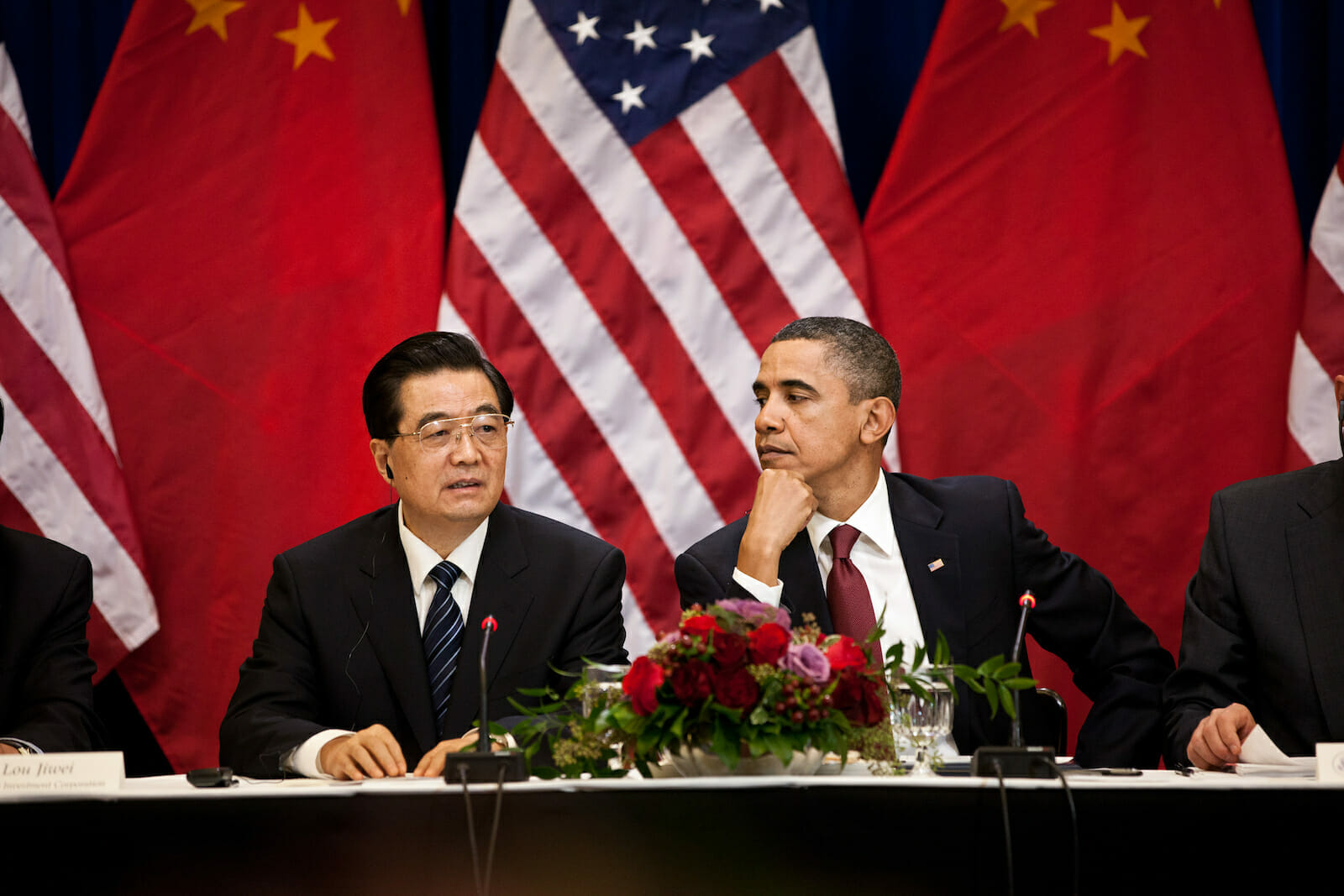
The United States and the Asia-Pacific Region
China’s centralized policymaking continues to be at odds with a world system that strives to observe the principles promoted by the international community. At the Reuters Washington Summit, Undersecretary of State Robert Hormats stated that “There’s competition between the American economic model and the more state-centered economic model of China” and “We have a challenge in dealing with China. On one hand, the global system won’t work well if we and China can’t cooperate and productively resolve our differences.”
With the developed world reinforcing the notions of democracy and open markets, China continues to combat Western influence as a means to preserve its national sovereignty and diminish foreign interference in domestic affairs. Undersecretary Hormats’ resolution to this issue is for the West to promote its “principles and practices” as a means to “signal to China that other countries are playing by a higher set of international rules.”
The APEC and ASEAN summits provided U.S. leaders the opportunity to vocalize the nation’s discontent over the growing trade imbalance with China. President Obama acknowledged China’s importance in defining the U.S.’s “long-term economic future” while vocalizing irritation about Beijing’s contemporary trade policies. China’s unwillingness to hasten the liberalization of its trade policies and consider currency revaluation has led to much consternation among free-marketers, who perceive China’s state-controlled economy as unfair.
For Western countries, it is imperative that international markets remain in the hands of countries that are willing to play by the rules. For China, the strong relationship between the government and market has led to the nation’s success over the decades. Hand-selecting which businesses will succeed and fail has undermined competition from foreign markets. During the APEC, Nick Consonery of the Eurasia Group asserted that stymieing competition has led many “U.S. businesses” to become “increasingly pessimistic about their trajectory in China.”
A recently released report from the U.S.-China Economic and Security Review Commission – entitled “An Analysis of State-owned Enterprises and State Capitalism in China” – reaffirmed this sentiment by detailing how Beijing’s domestic policies knowingly place foreign competition at a disadvantage. It is because of the progress made over the past decade that Beijing is uninterested in transitioning to a free-market model, which would strip power away from national leaders and leave the country vulnerable to the international market rules designed and enforced by Western leaders.
The trade imbalance needs to be corrected, but the manner in which it is being pursued by the international community – demanding extensive, liberalizing reforms with little concessions – only reinforces Beijing’s perception that Western countries strive to impose their own interests on China. A similar view – gaining a trade advantage by ‘gaming the system’ – has been constructed by the international community, in their concerns that the Chinese government is manipulating its currency and the diminishing foreign competition in domestic markets.
Western Demands, Eastern Capitulation
Beijing’s decision to join the WTO, in 2001, was a significant shift in the way China perceived its strength and relations with the international community. Moving into the international arena was a gamble by the Chinese government. It would allow the Beijing to expand its current market, but it would also force China to liberalize portions of its economic model, diminishing the government’s control over foreign competition.
For many Western leaders, it was hoped that China’s membership in the WTO would inspire government officials to institute economic reforms that would move the country away from the state-capitalism model. Between 2001 and 2010, China reformed its markets enough to become the world’s second largest exporter and economy; however, the reforms did not lead to the liberalized policies expected by the international community. During this time, state-owned enterprises and privately-owned national champions continued to strengthen due to increased government involvement, providing subsidies to market sectors and individual companies deemed important for China’s success.
Improvements have been made to China’s domestic market policies that assisted in strengthening the nation’s work force. Until recently, China’s intense focus on a select group of industries has allowed independent entrepreneurs – ‘bamboo capitalists’ – to compete at a local level with state-controlled firms. “Bamboo capitalism has driven up wages and benefits,” wrote Robert Lenzner in Forbes Magazine, which aided in further liberalizing the nation’s market policies. Coupled with reforms to the country’s working-class, bamboo capitalist’s succeeded in diminishing the amount of energy subsidies handed out by the Chinese government, as well as weakened the state’s grip on price controls. In a Joint Report released in 2010 by the IEA, OPEC, OECD, and World Bank – entitled Analysis of the Scope of Energy Subsidies and Suggestions for the G-20 Initiative, China is one of “a number of countries” that “have made notable reforms to bring their domestic energy prices into line with world prices.”
China has made some strides in building an economic model more in line with the international community, though the economic collapse in 2008 did not help in convincing China that a free-market economy was a more viable option for growth and development than state-capitalism. Even without the economic collapse occurring, the Chinese government’s foot-dragging on transforming its market dynamics stems from its decades-long concern over foreign interference in domestic and regional affairs.
U.S. Strategy: Overplay Your Hand
Trust is an important factor in international affairs that seems to remain elusive in the West’s relations with Beijing. China is moving its markets in the right direction and has initiated a series of reforms that have weakened some of the central authority’s ability to dictate all aspects of the domestic economy. However, the lack of trust between the Chinese government and the international community is slowing further progress, as Beijing continues to strengthen and expand some of its state-owned enterprises.
While at the ASEAN summit, on November 17th, President Obama “acknowledged China’s unease at what it sees as attempts by the U.S. to encircle it,” while simultaneously declaring the U.S. is “here to stay,” in the Pacific region, and announcing a U.S. Marine base will be established in Darwin, Australia. With these remarks, the United States acknowledged Beijing’s concerns while flying in the face of them; an aggressive policy to ensure China’s “peaceful rise.”
In an interview with Reuters during the APEC summit, Rich Lavin, President of Caterpillar, Inc., said: “The worst thing we (U.S.) can do is encourage a process that may result in some sort of trade war in the two largest economies in the world.” It is unclear as to how China will react to the Marine base being established in Australia, but this move by the U.S. has the potential to not only undercut trade policies with the West, but also lead the Chinese government to reverse its most recent market reforms.
Strong rhetoric and aggressive strategies are useful when ramping up a campaign for political office, but, when striving to cozy up to the world’s second largest economy, the consequences will have negative effects for America over the long-term. China’s government is already handing over portions of its authority as it cedes to the West’s demands to further liberalize its markets; it would not be interested in weakening its regional influence with an increased U.S. presence.
With both countries leveling legitimate grievances against the other regarding gaming the system, perhaps it is time for the world to decide upon a mutually agreeable definition of the term ‘fair.’

